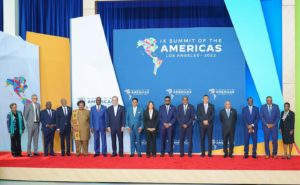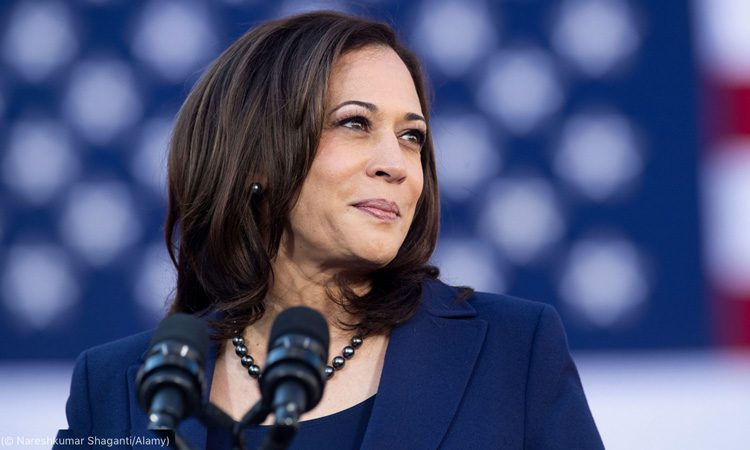In light of the climate crisis and energy woes that plague the Caribbean, United States’ Vice President Kamala Harris on Thursday announced a plan to address those critical concerns.
The United States’ primary mechanism for addressing energy security and the climate crisis in the Pacific region is called Pacific Adaptation to Climate Change (PACC) 2030. While its focus has been on the Pacific region, the US VP said that Caribbean nations can now access funding and support through this initiative.
During a meeting with Caribbean Heads of States at the IX Summit of the Americas in Los Angeles, VP Harris said, “As neighbours in the Western Hemisphere, the United States shares common bonds and interests with Caribbean nations… Our partnership is key to our shared prosperity and security. Today, our main focus will be the climate crisis, which of course is an existential crisis for our entire planet and the Caribbean is on the front line of this crisis.”
Through this partnership, Harris highlighted that the US will support energy, infrastructure, and climate resilience projects at every stage of development from beginning to end, in four particular ways, namely:
-
Working with the Caribbean to identify new clean energy projects;
-
Providing technical assistance to ensure that those energy projects are viable and appealing to countries and investors;
-
Taking investors to the Caribbean to showcase the projects, and lastly and importantly,
-
Improving access to development financing, aimed at making these projects a reality.

In recognising the productive and meaningful role of the private sector in this programme, the Vice President committed that the US government will work with investors.
“When we accelerate the transition to clean energy,” she said, “I think we all believe that we unlock great economic opportunities for the entire region. When we work together to address this urgent threat, it benefits the people of the United States and the people of the Caribbean and all of us, of course, benefit by reducing emissions. In conclusion, strengthening the US-Caribbean relationship is a priority for me. And regarding the climate crisis, it is one of our highest priorities but there are other issues that are also very important that we can and must address together.”
Gathering financing for climate adaptation and mitigation is an area that the Government of Guyana has been aggressively pursuing. At the beginning of this week when Guyana joined the globe in celebrating World Environment Day, President Dr Mohamed Irfaan Ali underscored the importance of the country exploring every revenue-generating activity to build climate-resilient systems.
“We are far away from the minimal US$100 billion pledge that the developed world would have made to fight climate change, adaptation and mitigation measures… This is a reality, with rising sea levels, with changes in climatic conditions. This is the cost; this is the investment that is required. That is why developing countries like Guyana must take a balanced approach,” the Head of State pointed out in his address.
Guyana’s President led a delegation, which included Minister of Foreign Affairs and International Cooperation, Hugh Todd; Foreign Secretary, Robert Persaud and Ambassador, George Talbot to the five-day international meet.




